 W
WAlternative legal systems began to be used by Irish nationalist organizations during the 1760s as a means of opposing British rule in Ireland. Groups which enforced different laws included the Whiteboys, Repeal Association, Ribbonmen, Irish National Land League, Irish National League, United Irish League, Sinn Féin, and the Irish Republic during the Irish War of Independence. These alternative justice systems were connected to the agrarian protest movements which sponsored them and filled the gap left by the official authority, which never had the popular support or legitimacy which it needed to govern effectively. Opponents of British rule in Ireland sought to create an alternative system, based on Irish law, which would eventually supplant British authority.
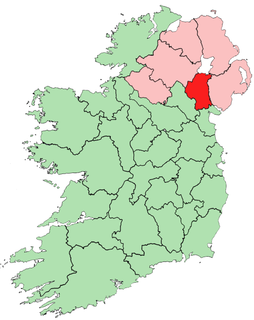 W
WThe Armagh disturbances was a period of intense sectarian fighting in the 1780s and 1790s between the Ulster Protestant Peep o' Day Boys and the Roman Catholic Defenders, in County Armagh, Kingdom of Ireland, culminating in the Battle of the Diamond in 1795.
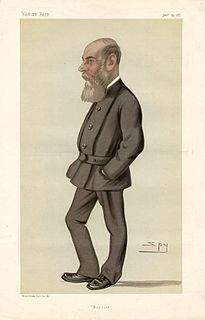 W
WCharles Cunningham Boycott was an English land agent whose ostracism by his local community in Ireland gave the English language the verb "to boycott". He had served in the British Army 39th Foot, which brought him to Ireland. After retiring from the army, Boycott worked as a land agent for Lord Erne, a landowner in the Lough Mask area of County Mayo.
 W
WThe Irish Land and Labour Association (ILLA) was a progressive movement founded in the early 1890s in Munster, Ireland, to organise and pursue political agitation for small tenant farmers' and rural labourers' rights. Its branches also spread into Connacht. The ILLA was known under different names—Land and Labour Association (LLA) or League (LLL). Its branches were active for almost thirty years, and had considerable success in propagating labour ideals before their traditions became the basis for the new labour and trade unions movements, with which they gradually amalgamated.
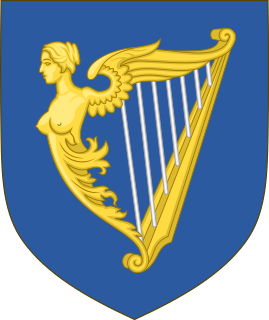 W
WThe Irish Parliamentary Party was formed in 1874 by Isaac Butt, the leader of the Nationalist Party, replacing the Home Rule League, as official parliamentary party for Irish nationalist Members of Parliament (MPs) elected to the House of Commons at Westminster within the United Kingdom of Great Britain and Ireland up until 1918. Its central objectives were legislative independence for Ireland and land reform. Its constitutional movement was instrumental in laying the groundwork for Irish self-government through three Irish Home Rule bills.
 W
WThe Land Law (Ireland) Act 1881 was the second Irish land act passed by the Parliament of the United Kingdom in 1881.
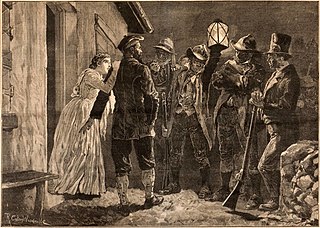 W
WThe Land War was a period of agrarian agitation in rural Ireland that began in 1879. It may refer specifically to the first and most intense period of agitation between 1879 and 1882, or include later outbreaks of agitation that periodically reignited until 1923, especially the 1886–1891 Plan of Campaign and the 1906–1909 Ranch War. The agitation was led by the Irish National Land League and its successors, the Irish National League and the United Irish League, and aimed to secure fair rent, free sale, and fixity of tenure for tenant farmers and ultimately peasant proprietorship of the land they worked.
 W
WThe Landlord and Tenant (Ireland) Act 1870 was an Act passed by the Parliament of the United Kingdom in 1870.
 W
WThe Plan of Campaign was a stratagem adopted in Ireland between 1886 and 1891, co-ordinated by Irish politicians for the benefit of tenant farmers, against mainly absentee and rack-rent landlords. It was launched to counter agricultural distress caused by the continual depression in prices of dairy products and cattle from the mid-1870s, which left many tenants in arrears with rent. Bad weather in 1885 and 1886 also caused crop failure, making it harder to pay rents. The Land War of the early 1880s was about to be renewed after evictions increased and outrages became widespread.
 W
WThe Protection of Persons and Property (Ireland) Act, also called the Coercion Act, was an act of the Parliament of the United Kingdom which allowed for internment without trial of those suspected of involvement in the Land War in Ireland. The provisions could be introduced by proclamation of the Lord Lieutenant of Ireland in any area of the island. Lists of internees had to be laid before Parliament.
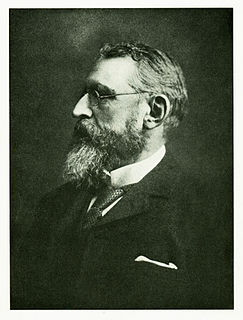 W
WThe United Irish League (UIL) was a nationalist political party in Ireland, launched 23 January 1898 with the motto "The Land for the People". Its objective to be achieved through agrarian agitation and land reform, compelling larger grazier farmers to surrender their lands for redistribution among the small tenant farmers. Founded and initiated at Westport, County Mayo by William O'Brien, it was supported by Michael Davitt MP, John Dillon MP, who worded its constitution, Timothy Harrington MP, John O'Connor Power MP and the Catholic clergy of the district. By 1900 it had expanded to be represented by 462 branches in twenty-five counties.